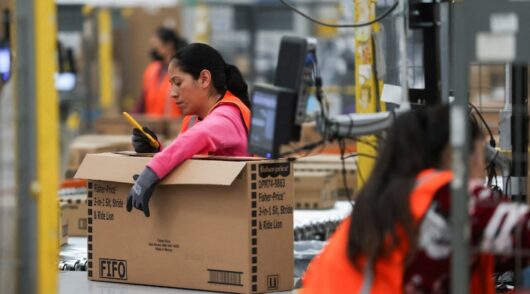
March 2020 was an unprecedented month as the social and economic ramifications of the COVID-19 pandemic amplified throughout. It prompted exceptional sales growth in FMCG product sales across retail channels, with weekly supermarket gains (versus the same week year ago) surging by over 50 per cent for the week ending 17/03/20.
As we approached Easter – with social distancing well and truly ingrained into the socio-cultural norms of day-to-day life – sales growth has begun to normalise to prior year levels across countries for which POS data is collected by IRI.
In other words, consumers across Italy, France, the US, Germany, Netherlands, Greece, New Zealand, and the UK have broadly been adjusting to ‘steady-state purchasing’ with many category sales curves not just flattening, but now beginning to head downwards.
That said, variable demand exists across categories primarily due to consumers spending the overwhelming majority of time at home. It’s a telling reminder of just how much location (and lifestyle) underpin the behaviours and product choices that ultimately fulfil occasion specific needs.
Australia too is on the path to FMCG sales normalisation as ‘fear-of-running-out’ (FORO) exerts less influence on shopping missions than observed in late February and March. Weekly supermarket sales growth has continuously dipped from the aforementioned high to low double-digit growth for the week ending 07/04/20.
In fact, sales growth for the latest week has dipped below the 15 per cent dollar uplift recorded in the first week of March. Many drivers underpin this: a slight reduction in the intensity of concern (and panic) as Australia makes headway in ‘flattening the curve’; the expectation (or hope) for slow resumption to normalcy; overflowing pantries reducing basket spend per trip; and reduced store visits and shelf dwell time because of social distancing mandates and fear of infection.
As the sales of pantry essentials stabilise, we expect to see strong sales of affordable FMCG luxuries such as premium drinks, snacks and confectionery. There is a huge opportunity to for the industry to position everyday indulgences as ‘antidotes to reality’ as stress/boredom levels escalate; clearly this is not a new approach, but it is so pertinent right now in light of the ongoing tensions and frustrations that manifest from being cocooned in our homes and stripped of the basic entitlements we have long taken for granted.
Also worth noting is that the slowdown in growth recorded over the last 4 weeks does not necessarily mean that we should expect a linear trajectory that marks the end of the industry’s scramble to adjust to accelerated consumer demand.
IRI have recently published a freely accessible report ‘COVID-19: Lessons from Hong Kong’ detailing how the city was further ahead than most other regions along the pantry stockpiling curve due.
POS data highlights panic buying had flattened out as cases fell, but a second wave of stockpiling materialised amid a secondary outbreak of COVID-19. Nevertheless, Hong Kong suggests that the duration and velocity of the spike in FMCG sales from a second or third wave of infections will likely prove less significant for non-food items. The sought after FMCG items will, however, remain broadly consistent.
COVID-19 has accelerated the shift to online shopping and will likely to continue doing so in the longer-term. IRI’s unique global perspective reveals that e-commerce is continuing to show very strong growth over the last year in US, Italy, and France.
In Italy and France, there is a consistent, increasing shift to e-commerce since the beginning of the crisis. In the US, in-store sales grew more than e-commerce initially, but is beginning to revert more online post-stockpiling.
COVID-19 has brought into focus how the FMCG industry provides critical value on a daily basis for those in need of basic necessities. With the industry so intricately connected to the day-to-day lives of consumers, it is uniquely placed to play a leadership role. Stakeholders should help consumers navigate newfound lifestyle realities at a time when they value (and need) support from the brands they appreciate. Getting close to customers at this unprecedented time will allow industry stakeholders to optimally respond to genuinely new and evolving consumer behaviours during the COVID-19 outbreak and beyond.
IRI are here to help!
When faced with unprecedented levels of disruption and uncertainty, leveraging advanced analytics to support decision-making becomes even more important. And that’s where IRI continues to be ‘part of the solution’, as we seek to help optimise the industry’s decision making going forward.
IRI is closely tracking developments in our industry using our data sources (point-of-sale, loyalty, panel, e-commerce and social media) to help our clients understand the resulting changes in consumer and shopper behaviour across categories, brands, channels and retailers in the areas affected by the virus.
Our goal is to help companies successfully manage real-time supply/demand chain issues and determine how to best handle promotions, out-of-stocks, pricing and assortment to meet the changing needs of consumers. And it does not stop at market measurement; our most recent Australian perspective is designed as a playbook of ‘thought-starters’ and tactics of what to consider when handling your ongoing response. To access our freely accessible global and local insights, please visit our COVID-19 content hub here.
For more information on how IRI can provide data and insights to grow your business, visit IRIworldwide.com.au, or contact us at +61 2 8789 4000.
By Daniel Bone, Insights Director, IRI





